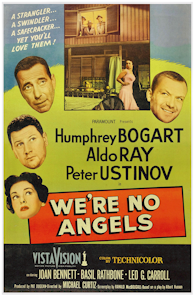BOOK REVIEW
‘LEFT-WING’ COMMUNISM-AN INFANTILE DISORDER, V.I. LENIN, UNIVERSITY PRESS OF THE PACIFIC, CALIFORNIA, 2001
An underlying premise of the Lenin-led Bolshevik Revolution in Russian in 1917 was that success there would be the first episode in a world-wide socialist revolution. While a specific timetable was not placed on the order of the day the early Bolshevik leaders, principally Lenin and Trotsky, both assumed that those events would occur in the immediate post-World War I period, or shortly thereafter. Alas, such was not the case, although not from lack of trying on the part of an internationalist-minded section of the Bolshevik leadership.
Another underlying premise, developed by the Leninists as part of their opposition to the imperialist First World War, was the need for a new revolutionary labor international to replace the compromised and moribund Socialist International (also known as the Second International) which had turned out to be useless as an instrument for revolution or even of opposition to the European war. The Bolsheviks took that step after seizing power and established the Communist International (also known as the Comintern or Third International) in 1919. As part of the process of arming that international with a revolutionary strategy (and practice) Lenin produced this polemic to address certain confusions, some willfully, that had arisen in the European left and also attempted to instill some of the hard-learned lessons of the Russian revolutionary experience in them.
The Russian Revolution and after it the Comintern in the early heroic days, for the most part, drew the best and most militant layers of the working class and radical intellectuals to their defense. However, that is not the same as drawing experienced Bolsheviks to that defense. Many militants were anti-parliamentarian or anti-electoral in principle after the sorry experiences with the European social democracy. Others wanted to emulate the old heroic days of the Bolshevik underground party or create a minority, exclusive conspiratorial party. Still others wanted to abandon the reformist bureaucratically-led trade unions to their then current leaderships, and so on. Lenin’s polemic, and it nothing but a flat-out polemic against all kinds of misconceptions of the Bolshevik experience, cut across these erroneous ideas like a knife. His literary style may not appeal to today’s audience but the political message still has considerable application today. At the time that it was written no less a figure than James P. Cannon, a central leader of the American Communist Party, credited the pamphlet with straightening out that badly confused movement (Indeed, it seems every possible political problem Lenin argued against in that pamphlet had some following in the American Party-in triplicate!). That alone makes it worth a look at.
I would like to highlight one point made by Lenin that has currency for leftists today, particularly American leftists. At the time it was written many (most) of the communist organizations adhering to the Comintern were little more than propaganda groups (including the American Party). Lenin suggested one of the ways to break out of that isolation was a tactic of critical support to the still large and influential social democratic organizations at election time. In his apt expression- to support those organizations "like a rope supports a hanging man".
However, as part of my political experiences in America around election time I have run into any number of ‘socialists’ and ‘communists’ who have turned Lenin’s concept on its head. How? By arguing that militants needed to ‘critically support’ the Democratic Party (who else, right?) as an application of the Leninist criterion for critical support. No, a thousand times no. Lenin’s specific example was the reformist British Labor Party, a party at that time (and to a lesser extent today) solidly based on the trade unions- organizations of the working class and no other. The Democratic Party in America was then , is now and will always be a capitalist party. Yes, the labor bureaucrats and ordinary workers support it, finance it, drool over it but in no way is it a labor party. That is the class difference which even sincere militants have broken their teeth on for at least the last seventy years. And that, dear reader, is another reason why it worthwhile to take a peek at this book.














